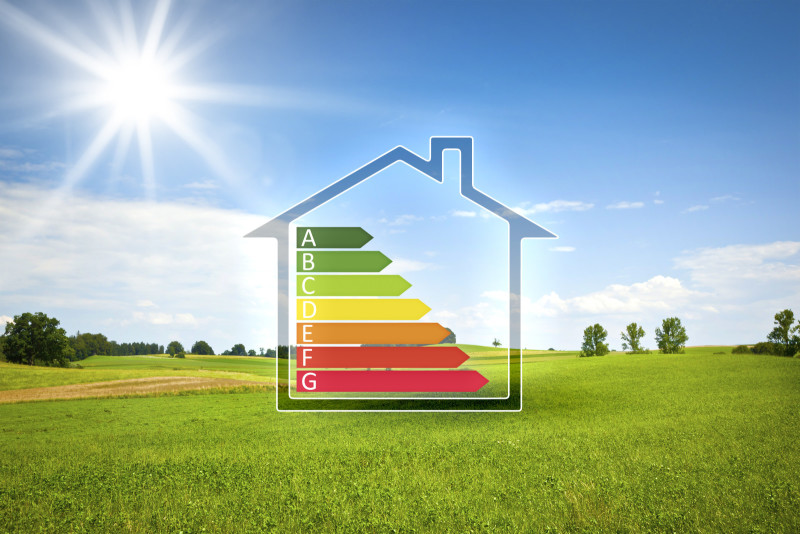
Top Tax Advantages to Make Home Ownership More Affordable
One of the most significant financial decisions people will ever make is purchasing a home. Saving for a down payment and paying the mortgage, property tax, and homeowners insurance can be a big deal when you have to manage these expenses simultaneously.
In reality, the costs of home ownership may be lower than you had imagined. You will find valuable information on this list of tax advantages to make homeownership more affordable that can help you set your dreams into motion.
Numerous tax incentives can make home ownership more affordable for Oregon multi family homes for sale. Hence, we have provided a few of the most beneficial tax advantages for homeowners below to ensure they can purchase their desired homes.
Mortgage Discount Points
Homeowners can also deduct mortgage points paid at closing as part of their tax deduction for home equity. Discount points can reduce borrowers' interest rates.
"Points" are fees paid to the lender at closing. If you are purchasing, building, or improving your principal residence with a loan, the points you pay are often tax deductible in the year you are born.
It is important to note that there are several requirements you need to meet before you may be able to deduct points paid on a typical mortgage, including the fact that your primary residence must secure the loan.
The points on mortgages are often referred to as discount points, and each discount point equates to one percent of the loan's principal.
Even if the home seller puts up points on your behalf, you are still eligible for deductions. The seller-paid points need to be deducted from your cost basis before you sell the house, so keep a copy of your tax return for that year permanently.
Although the loan points paid on a second house are not tax deductible in the year they are born, they can still be amortized over the loan term.
Mortgage Interest Deduction
Deducting mortgage interest paid on a primary or secondary residence is a significant tax advantage for homebuyers and homeowners and go for no tax return mortgage.
You can deduct the interest you pay on mortgage debt up to $750,000 if you are a single taxpayer or a married couple filing jointly. You can deduct interest on mortgage debt up to $375,000 if you are divorced or separated.
If the house was purchased before December 15, 2017. In that case, the maximum deduction for mortgage interest is $1 million for single filers and married couples filing jointly and $500,000 for single filers and married couples filing separately.
In the case of a $1,000,000 mortgage, you can't write off 100% of the interest.
Both home equity loans and home equity lines of credit are subject to the same deductible limitations. As long as you constructed, purchased, or improved your primary or secondary residence with your first mortgage and home equity line of credit (HELOC) for less than $750,000, you can deduct the total interest you paid on both loans as a single taxpayer.
Mortgage Insurance Deduction
Borrowers pay mortgage insurance upfront. The IRS considers tax deductible for FHA, VA, USDA loans, and private mortgage insurance.
The deduction, however, starts to decrease after your adjusted gross income (AGI) reaches $100,000 (the ceiling is $50,000 if you're married and filing separately). It can no longer be deducted if your adjusted gross income exceeds $109,000 ($54,500 if married filing separately).
It would be best if you verified the current year's tax regulations before relying on these savings, as this deduction may be phased out in the future.
Real Estate Taxes
When you choose the right real estate agent, who may help you to make your taxable income reduced by the taxes paid to the local and state governments in the same year they are born.
A deduction of this type is combined with sales and state and local income taxes and is restricted to $10,000 per year ($5,000 if married and filing separately).
In certain states, however, you may not be eligible for deducting all state and local taxes if you reside in a state where the property or income taxes are very high.
You cannot deduct state and local income taxes AND state sales taxes. Therefore, a property tax combined with state and local income taxes or a property tax combined with state sales taxes counts against the $10,000 deduction limit.
Tax Deduction for Home Sale Gains
You will be required to pay a portion of your earnings to the Internal Revenue Service (IRS) if you make money from sales. When you sell your property, the same applies; however, if you have resided there for at least two years in the past five years, you may be able to keep a large portion of your gains tax-free.
You can exclude up to $250,000 from your taxable profits from the sale of your primary residence as an individual, while married couples may exclude up to $500,000.
Homeowners looking for multi-family home need to track how much they spend on home repair and renovations. Many of these expenses can be added to the home's cost basis to offset future capital gains.
Energy Savings
The IRS offers non-refundable tax credits to homeowners who invest in renewable energy sources through December 31, 2021. Solar Power Plants, solar water heaters, geothermal heat pumps, mini wind turbines, and fuel cell homes may be deducted for tax purposes.
Depending on when the item is put into service, the credit varies. For example, you may receive a rebate of 22% for installing a fuel cell in 2021. If you established it in 2020, you might receive a refund of 26%.
Home Office Deduction
It is a tax benefit available to homeowners and renters who perform work-related activities in their homes. You'll need evidence that you run your company primarily from home. You'll need a dedicated workspace inside your house (maybe a spare bedroom).
Two methods are available for taking the deduction:
- The conventional approach involves determining what fraction of your house is dedicated to working.
- The streamlined option allows you to deduct $5 per square foot (up to 300 square feet) for home-based businesses.
The Bottom Line
Investing in a home can be one of the most critical steps toward a family's financial stability and mental health. But it's not uncommon for homeowners to forget about the tax benefits of such an investment.
To reduce the overall cost of your property, you should learn about various tax breaks and credits available to homeowners.
It would help to calculate your tax deductions since you may miss hundreds or even thousands of dollars. Before making your final tax decision, you should compare your itemized deductions with the standard deduction.
Author Bio
Kristina White is the Marketing Director at Zero Down. Kristina loves to contribute informative articles in the real estate sector. She proactively keeps herself updated on the changing trends in the housing industry. In her spare time, you’ll find her reading novels and solving crossword quizzes.


